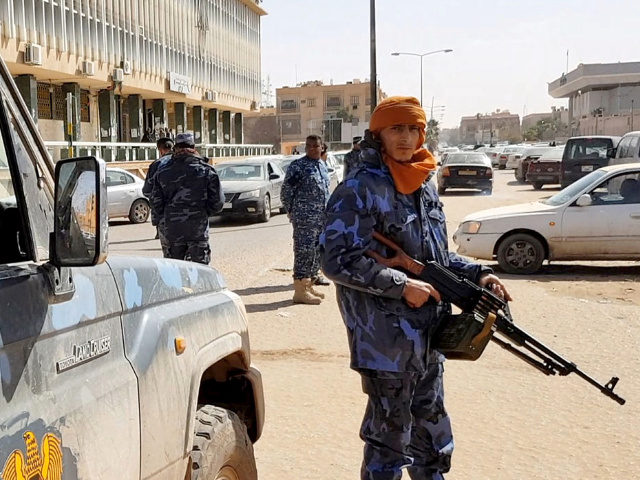The Islamic State (ISIS) has taken credit for an attack against the forces of Libyan warlord Khalifa Haftar, which took place before dawn on Saturday in Sebha, in southern Libya.
Through its propaganda agency, “Amaq,” ISIS announced that the “soldiers of the caliphate” had carried out an attack against “the infidels and the apostates” in reference to the forces of the self-styled Libyan National Army (LNA) of General Khalifa Haftar in Cyrenaica.
According to Amaq, 16 soldiers were killed in the attack, while sources from the Sebha Medical Center reported that they had received the bodies of nine men.
The attack reportedly took place around 1:00 am at the Sebha training center, just more than two miles north of the city and home to the 166th infantry battalion of the LNA.
In early April, Haftar forces launched an invasion to wrest the Libyan capital of Tripoli from the internationally recognized government (GNA). Haftar has identified himself as an anti-Islamist military leader and has sought to rule Libya for years, having attempted an invasion of Tripoli in 2014.
Haftar’s Libyan National Army has helped temper the influence of groups like the Islamic State and al-Qaeda, though some have accused him of forming backroom alliances with jihadists in his pursuit of control of Tripoli.
While Russia, France, and Egypt, among others, lend support to Haftar’s forces, many others, such as Italy, have thrown their support behind the GNA under Prime Minister Fayez al-Sarraj.
Critics of Italy’s enthusiastic alliance with the GNA have suggested that the country may favor short-term advantage over longer-term strategic goals.
Analyst Francesco Galietti, who runs a political risk consultancy called Policy Sonar, told Breitbart News Saturday that Italy “constantly chooses short-term gain, siding de facto with the Muslim Brotherhood and Islamic State because it thinks that by doing so it will avoid terror attacks on Italian soil.”
“But by doing so it is sliding into a global club of geopolitical villains,” Galietti said, “along with China, Iran, and Qatar.”
Follow Thomas D. Williams on Twitter Follow @tdwilliamsrome

COMMENTS
Please let us know if you're having issues with commenting.